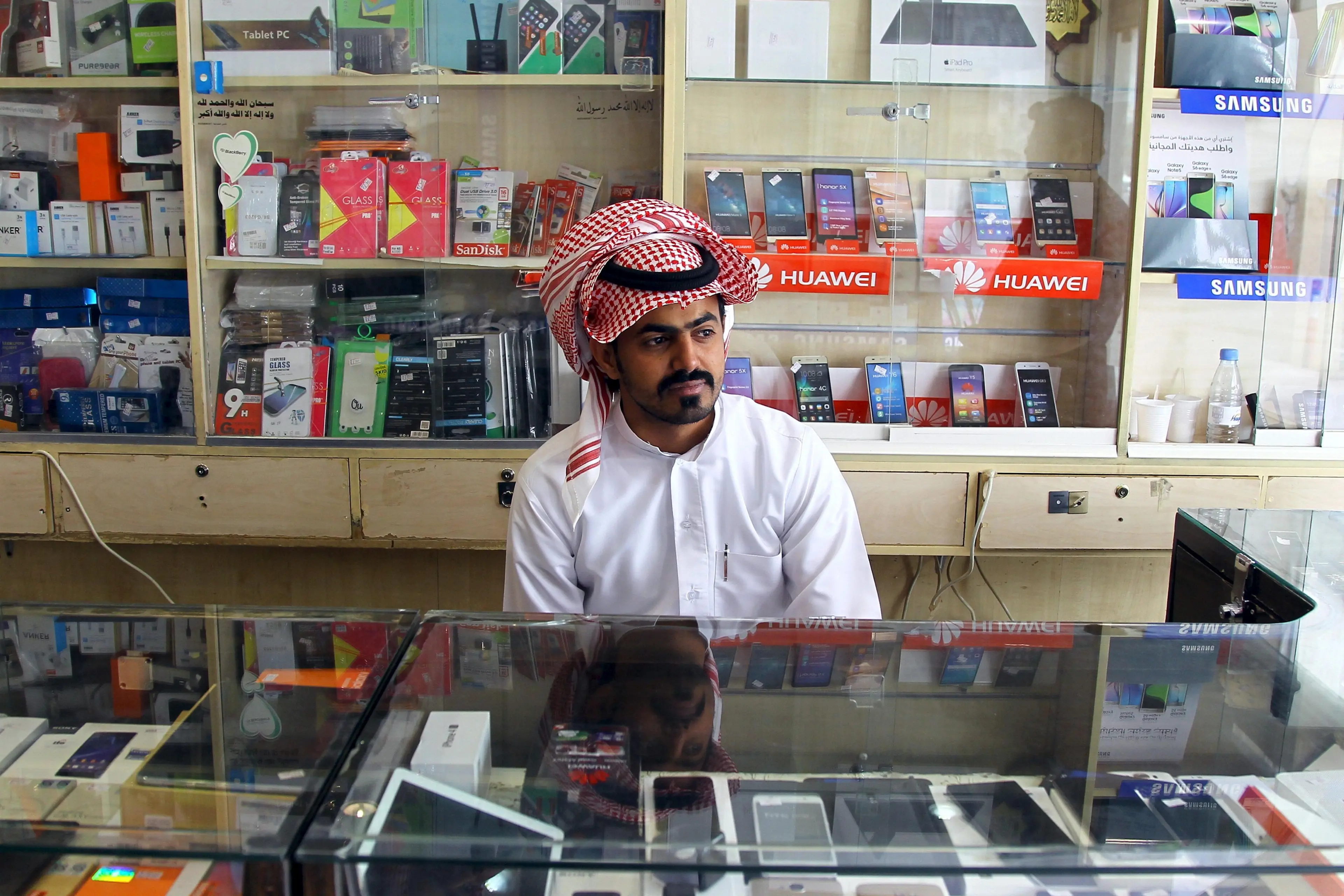PHOTO
Saudi Arabia has extended the validity of work visas for expatriates to two years, instead of the current one-year period, without any additional fees, the Ministry of Labor and Social Development announced.
The ministry said that the decision was taken with a view to to reducing obstacles for private sector firms and easing processes for businesses, according to an Arabic infographic tweet shared by its official account.
Private sector firms are now eligible to cancel current work visas to apply for new two-year visas, if the conditions for obtaining work visas are still applicable, according to the ministry.
“While the decision may be attacked by some Saudi citizens and job seekers, it is a catalyst for production and contributes to fill the needs of factories and companies in terms of the operational aspects of enterprises,” Safar Ayad, a Saudi economist and the co-founder of the digital economy section of local paper Alsharq, told Zawya by email.
Private sector firms in the kingdom are facing rising costs after the government introduced an expat levy on dependents in 2017, pushing a large number of foreigners to leave the kingdom. Despite the backlash, the Saudi finance minister announced last month that there is no intention of changing a policy that will see the levy increase both this year and next.
While all sectors in the kingdom were affected by the new fees, construction was the hardest hit, which could weigh on the government’s plan to build several megaprojects, according to BMI Research.
“Looking at the situation in Saudi’s private sector, there is still a lack of knowledge and risk appetite among Saudis. With expats involved, the necessary continuity in the private sector will be guaranteed,” Cyril Widdershoven, director of VEROCY, a Dutch geopolitical and financial analysis firm, told Zawya by email.
“It will take much longer to have the private sector reach its targeted percentage in GDP than is currently stated. The skill sets are not there and Saudi investors are risk averse to the point of looking only for high short term direct positive returns. This will need to be changed before you can take out high valued expats,” he added.
The plan to overhaul Saudi’s economy, known as Vision 2030, had set the development of small and medium enterprises as one of the key pillars of change, with the aim of increasing SME contribution to GDP from 20 percent to 35 percent.
At the same time, the new decision for visas contradicts Saudi Vision 2030 as Saudisatuon will be slowed down by this move, according to Widdershoven.”
Last year, the government tightened the job market for expats and added 12 new categories to jobs that can only be occupied by Saudi citizens, in an effort to tackle rising unemployment levels among Saudi youth. According to the latest official statistics, the unemployment rate for Saudis hovers around 12.9 percent, showing no signs of improvement since the tighter controls over hiring expats were put in place.
“The main moves to be made is to end the targets of being a rentier state in which the government is the main provider of jobs,” Widdershoven said.
“Saudi needs more and stronger SMEs as they will bring the jobs, as has been proven in Europe and the U.S. Innovation and change comes from companies smaller than 50 to 25 employees and not from giants or governments,” he added.
(Reporting by Nada Al Rifai; Editing by Michael Fahy)
(nada.rifai@refinitiv.com)
Our Standards: The Thomson Reuters Trust Principles
Disclaimer: This article is provided for informational purposes only. The content does not provide tax, legal or investment advice or opinion regarding the suitability, value or profitability of any particular security, portfolio or investment strategy. Read our full disclaimer policy here.
© ZAWYA 2019





















